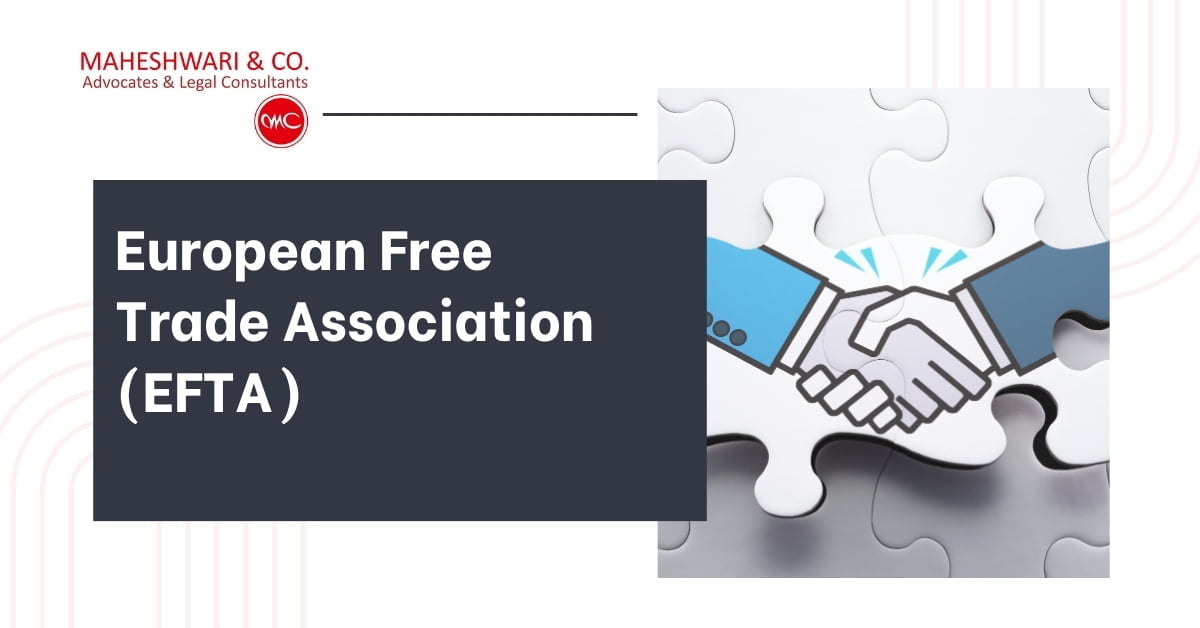The European Free Trade Association (EFTA) is an intergovernmental organization dedicated to fostering free trade and economic collaboration among its member states. Founded in 1960 by seven European countries – Austria, Denmark, Norway, Portugal, Sweden, Switzerland, and the United Kingdom – EFTA operates autonomously from the European Union (EU). Its core objective is to promote trade liberalization and economic integration among member states, while also encouraging cooperation across various domains such as trade in goods, services, investment, and intellectual property.
EFTA member states derive benefits from the removal of tariffs and trade barriers within the EFTA region, as well as through the negotiation of free trade agreements (FTAs) with other countries and regions. EFTA has successfully concluded numerous FTAs worldwide, thereby facilitating trade and economic cooperation beyond the confines of Europe.
India And Efta Ink Trade And Economic Partnership Agreement (TEPA)
On Sunday, March 10, 2024, India and the European Free Trade Association (EFTA) finalized a Trade and Economic Partnership Agreement (TEPA). The Union Cabinet, led by the Hon’ble Prime Minister, approved the signing of this agreement with the EFTA States. The India-EFTA TEPA is aimed at fostering economic collaboration between India and EFTA countries, including Switzerland, Iceland, Norway, and Liechtenstein. This agreement prioritizes areas such as market access, investment promotion, Intellectual Property Rights (IPR) protection, and other trade-related aspects to bolster economic cooperation between India and the EFTA states.
The agreement consists of 14 chapters, primarily emphasizing market access concerning goods, rules of origin, trade facilitation, trade remedies, sanitary and phytosanitary measures, technical barriers to trade, promotion of investment, services market access, protection of intellectual property rights, trade and sustainable development, and additional legal and horizontal provisions.
The highlights of the agreement are:
- Market Access: TEPA enables Indian exporters to access specialized inputs and facilitates integration into EU markets, with Switzerland serving as a base for EU market reach. It emphasizes sustainable development, human rights, transparency, efficiency, and simplification of trade procedures.
- Job Creation: For the first time in FTA history, EFTA commits to promoting targeted investments and job creation. EFTA aims to boost foreign direct investments (FDI) in India by USD 100 billion over the next 15 years, aiming to generate 1 million direct jobs, excluding foreign portfolio investments.
- Services Trade: EFTA offers 92.2% of tariff lines, covering 99.6% of India’s exports, with complete coverage of non-agricultural products and tariff concessions on Processed Agricultural Products (PAP). India reciprocates by offering 82.7% of tariff lines, covering 95.3% of EFTA exports, excluding sensitive sectors like pharma, medical devices, and processed food.
- Template for other FTA negotiations: India offers 105 sub-sectors to EFTA and secures commitments from Switzerland (128), Norway (114), Liechtenstein (107), and Iceland (110).
- Services Sector Growth and Mutual Recognition Agreements: TEPA boosts India’s services exports in IT services, business services, personal, cultural, and recreational services, and includes provisions for digital service delivery and Mutual Recognition Agreements in Professional Services.
- Intellectual Property Protection: TEPA addresses Intellectual Property Rights (IPR) at TRIPS level, addressing India’s interests in generic medicines and concerns regarding patent evergreening.
- Domestic Manufacturing: TEPA will provide momentum to the ‘Make in India’ and Atmanirbhar Bharat initiatives by fostering domestic manufacturing in sectors like Infrastructure, Manufacturing, Pharmaceuticals, and Banking, aiming to accelerate job creation and technology collaboration.
- Enhanced Economic Integration: TEPA strengthens economic ties between EFTA countries and India.
TEPA Adherence: India’s Compliance Measures
TEPA includes a binding obligation on EFTA countries to aim to invest 100 billion USD5 into India along with facilitating the generation of 1 million jobs in India within 15 years from the entry into force of the TEPA. If these defined targets are not met by EFTA, India can invoke a three-stage consultation procedure. After the consultation, should India continue to believe that the said targets have not been fulfilled, India can suspend concessions after a further grace period of three years. Moreover, recourse has been provided for terminating or modifying the suspensions – one of the reasons for termination of suspension is the fulfilment of the defined target.
Way Forward
Partnership Agreement (TEPA) was formally signed in New Delhi, marking a significant milestone in bilateral economic relations. EFTA, with 34 FTAs covering 44 countries, views its accord with India as potentially one of its most significant, trailing behind its extensive FTAs with the EU and China. In the fiscal year 2022-23, India exported goods worth USD 1.92 billion to EFTA countries, a rise from USD 1.74 billion in the previous year. Meanwhile, imports from EFTA totalled USD 16.74 billion in the same period, down from USD 25.5 billion in 2021-22.
Looking ahead, EFTA aims to expand its trade agreements into Southeast Asia, specifically eyeing Thailand, Vietnam, and Malaysia. The successful signing of the TEPA with India is expected to pave the way for further agreements in the region.






